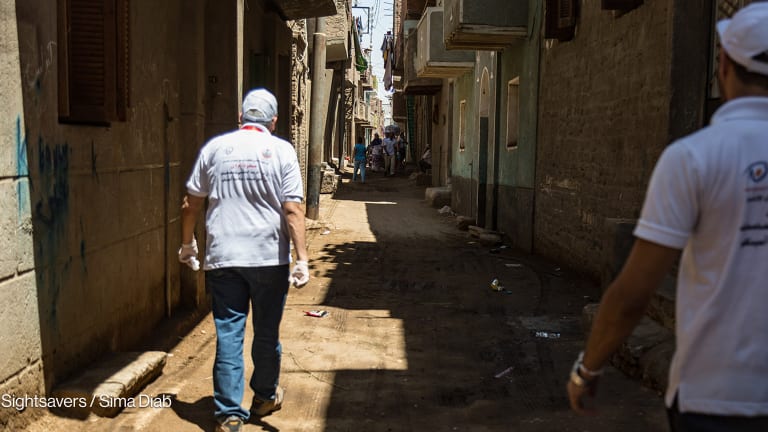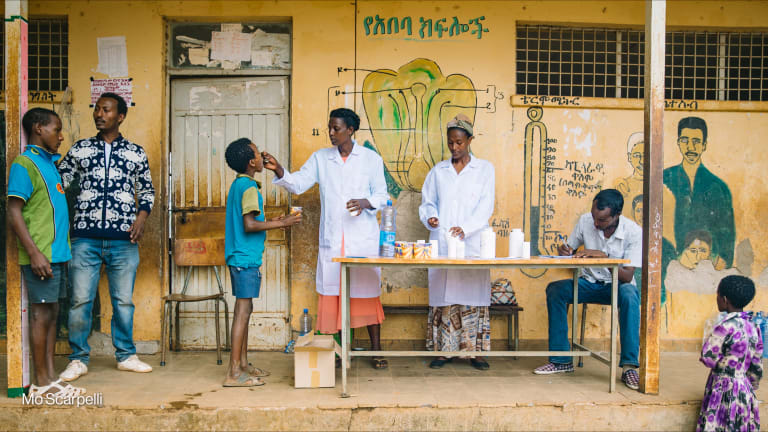
For more than three centuries, Tongans have suffered from kulokula fua — the local term for the large swelling in a person’s limbs, scrotum and breast caused by lymphatic filariasis.
But earlier this week, Tonga finally eliminated the disease, making it the latest country this year to do so. This means the incidence rate is less than 1 percent — which is the WHO-mandated benchmark indicating a disease has been eliminated as a public health problem — in all endemic areas in the country.
“They may or may not be completely free of the infection by this time,” Corinne Capuano, director of WHO’s Pacific Technical Support Division and country representative in Fiji, told Devex. Tonga needs to remain vigilant and continue post-elimination surveillance for potential emergencies or reintroduction of the disease over the next five to 10 years, she said.
However, she added that the likelihood of that happening is small, as the process leading up to the announcement has been rigorous. It required Tonga to conduct three transmission assessment surveys for the past five years, and provide WHO with documents containing a huge amount of information on the disease in the country, including interventions and assessments. Those documents were reviewed for validation by a group of independent global experts.
See more related stories:
▶ Neglected tropical diseases: Funding the next stage of the fight
▶ The Geneva Commitment on Neglected Tropical Diseases: Key takeaways
▶ Commitments made on neglected tropical diseases at WHO summit
“It is a very rigorous assessment,” Capuano said. “We have so far not seen a country that has reached this level of threshold going back to original level of spread.”
Tonga has been one of the worst-affected countries in the world by this neglected tropical disease. In 1976, a study referred to by Capuano revealed 45 percent of Tonga’s population had the infection. A separate study done in the same year found one in 12 people had elephantiasis — a swelling of the limbs — and one in two adult males had hydroceles, a swelling of the scrotum.
The disease can affect an individual’s ability to work and socialize due to stigma. Those suffering from hydrocele also encounter sexual difficulties.
The launch of the Global Program to Eliminate Lymphatic Filariasis in 2000, following a World Health Assembly resolution, proved to be a game changer not just in Tonga, but globally. That provided direction for a vision to eliminate lymphatic filariasis and action among different stakeholders to contribute toward that goal. Two of the world’s largest pharmaceutical companies, GlaxoSmithKline and Merck & Co, made long-term drug donation commitments. Eisai Inc., a Japanese pharmaceutical company, also agreed to donate over 2 billion diethylcarbamazine (DEC) tablets. A combination of these drugs has been used in mass drug administrations to treat entire populations at risk, help control the disease and stop the spread of infection. But reaching a “good” level of coverage — over 65 percent of the population annually for more than six years — was what proved pivotal in Tonga’s success, Capuano said.
“They in fact had a reported coverage of over 80 percent in each of the six rounds ranging between 81 percent and 92 percent,” she said. “That is among the best consistent treatment coverages we ever had anywhere.”
Support by different stakeholders and sustained leadership from the Ministry of Health were also instrumental, she added.
“Lymphatic filariasis elimination requires a long-term commitment. Sustaining the momentum gathered until the endgame is the key. The unwavering commitment by [Tonga’s Ministry of Health] and all key partners [Japan, GSK, WHO and the Korean Centres for Disease Control] was the key to overcome ... barriers,” she said. “I must also say that the community participation, the Tongan people’s acceptance and participation in the program, was an absolute plus.”
Tonga is the seventh country in the Western Pacific region to achieve WHO validation on the elimination of lymphatic filariasis as a public health problem. The Marshall Islands achieved the same in March this year, as did Togo in April.
For more Devex coverage on global health, visit Focus On: Global Health








